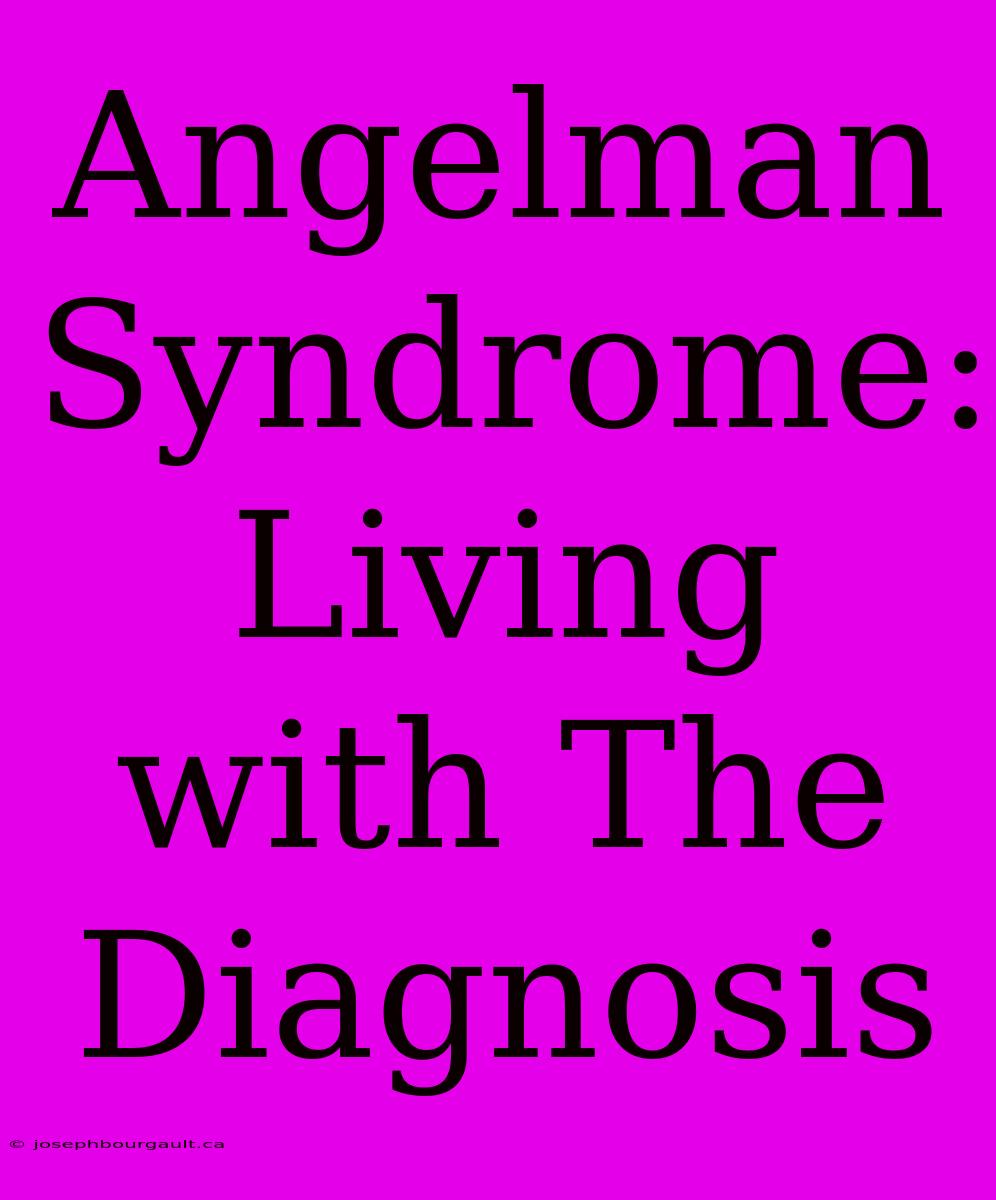Angelman Syndrome: Living with The Diagnosis
Angelman Syndrome (AS) is a rare genetic disorder that affects the nervous system, causing developmental delays, intellectual disability, and a variety of other challenges. Living with Angelman Syndrome presents unique challenges for both the individual and their family, but with understanding, support, and a positive outlook, life can be full of joy and meaning.
Understanding the Diagnosis
What is Angelman Syndrome?
Angelman Syndrome is caused by a deletion or mutation in the UBE3A gene, located on chromosome 15. This gene plays a crucial role in the development and function of the nervous system. While the symptoms can vary in severity, common characteristics of AS include:
- Developmental Delays: Children with AS often experience delays in reaching milestones such as walking, talking, and feeding.
- Intellectual Disability: While intellectual abilities can vary, individuals with AS typically have moderate to severe intellectual disabilities.
- Movement and Balance Issues: They may have difficulty with coordination, balance, and movement, often exhibiting a happy, energetic, and excitable demeanor.
- Speech Delays: Many individuals with AS develop their own unique form of communication, often using gestures, facial expressions, and sounds.
- Seizures: Seizures are a common symptom, occurring in approximately 80% of individuals with AS.
Diagnosis and Treatment
The diagnosis of AS is usually made through a combination of clinical evaluation, genetic testing, and observation of characteristic behaviors. There is currently no cure for Angelman Syndrome, but early intervention and ongoing therapies can help to improve an individual's quality of life.
Treatment options include:
- Physical Therapy: To improve motor skills, balance, and coordination.
- Occupational Therapy: To develop fine motor skills, self-care abilities, and daily living skills.
- Speech Therapy: To enhance communication skills and promote language development.
- Behavioral Therapy: To address challenging behaviors and promote positive social interactions.
- Medication: To manage seizures and other medical conditions.
Life with Angelman Syndrome
Living with Angelman Syndrome is a journey that requires patience, understanding, and a strong support system. While the challenges are real, the rewards are immense.
Here are some perspectives on life with Angelman Syndrome:
For Individuals with AS:
- Joy and Happiness: Individuals with AS are known for their happy and affectionate personalities. They often have a contagious enthusiasm for life and love to interact with others.
- Unique Abilities: While AS presents certain limitations, it also unlocks unique abilities. Some individuals with AS excel in music, art, or other creative fields.
- Finding Their Voice: Communication may be a challenge, but individuals with AS find ways to express themselves through a variety of methods, including gestures, facial expressions, and communication devices.
For Families and Caregivers:
- A Journey of Love: Caring for a child with AS requires unwavering love, patience, and support. Families often form strong bonds and create a loving environment where their child can thrive.
- Building a Community: Connecting with other families facing similar challenges can provide invaluable support, information, and resources.
- Advocating for Change: Families are actively involved in advocating for research, treatments, and resources to improve the lives of individuals with AS.
Embracing the Future
Angelman Syndrome presents its own unique set of challenges, but it is not the defining factor in a person's life. With understanding, support, and a focus on celebrating the individual's strengths and abilities, life with AS can be filled with joy, laughter, and a sense of purpose.
Resources for More Information:
- The Angelman Syndrome Foundation: https://www.angelman.org/
- Angelman Syndrome UK: https://www.angelman.org.uk/
- The Angelman Syndrome Research Foundation: https://www.angelsman.org/
By raising awareness, promoting understanding, and supporting research, we can create a more inclusive and supportive world for individuals with Angelman Syndrome.

